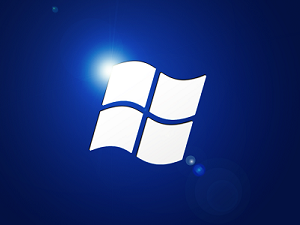8 Ways to use Cloud Services in Your Business
Posted by aonenetworks On January 24, 2014 Cloud computing has leveled the playing field for small businesses, in that the cost for services is a fraction of what it used to be. The cloud refers to a centralized location in the Internet where data is stored, making it accessible at any time, from any place or from any device. The reduced cost for storage is a significant benefit to the small business operating budget. Additionally, saving and accessing files is simple and easy, even for non-technical users.
Cloud computing has leveled the playing field for small businesses, in that the cost for services is a fraction of what it used to be. The cloud refers to a centralized location in the Internet where data is stored, making it accessible at any time, from any place or from any device. The reduced cost for storage is a significant benefit to the small business operating budget. Additionally, saving and accessing files is simple and easy, even for non-technical users.
Storage
Businesses use images, audio and video for digital marketing, and these file types can take up significant hard drive space. No longer will a business need to purchase and maintain servers for storing data.
Backup
The Cloud allows the files to be stored off the local system. Meaning this important data is backed up and readily available in case of system failure or other disaster.
Collaboration
This is especially advantageous for teams located across different locations. All team members will have access to the same, real-time file; streamlining project and sales collaboration. With BYOD gaining ground, cloud-based collaboration tools allow for quicker decision making since the document can be viewed from anywhere at any time. No longer is it necessary to email large files or save copies on a drive to be mailed.
Flexibility
All businesses now have the ability to create a fully functional mobile office. Employees can have access and sync their data from wherever they are, allowing them to take the office on the road.
Planning
The cloud is easily scaled to every business size. Cost to get started is based on usage. As the business grows and more storage is necessary, it can be quickly expanded to the new budget. Additionally, Cloud services are self-managed by the company providing the services; eliminating, or reducing, the need for an in-house IT department.
ERS
Enterprise Resource Planning has long been reserved for the larger corporations. Cloud-based ERP services are now affordable so all businesses can analyze for product planning, development, manufacturing, sales and marketing.
IaaS
Infrastructure as a service allows a business to instead focus on core activities that make money. Businesses can outsource all non-core activities to a managed service provider. These providers can manage a variety of services such as IT services and infrastructure, utility computing, or administrative tasks.
CRM
Customer relationship management software is a great way to maintain contact details, handle sales functions, and archive past communications; overall enabling a seamless customer experience.
The down-side to cloud-based computing includes protection and security of your data and loss of complete control. There are ways to protect your data and ensure it is secure at all times, and some businesses do not have the IT resources to control the data. So to many small businesses, the benefits far outweigh the risks.





